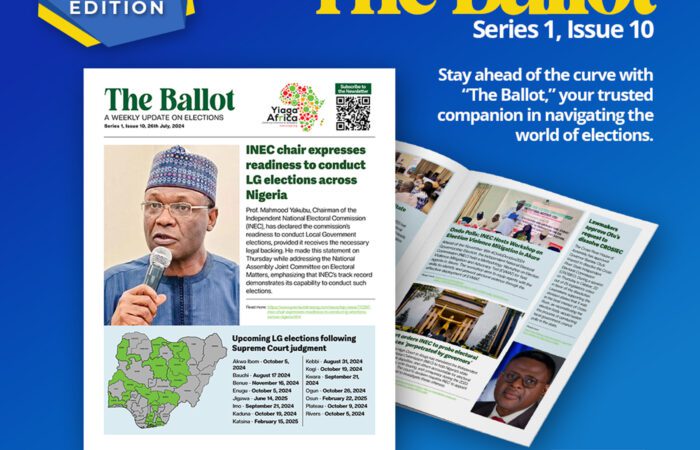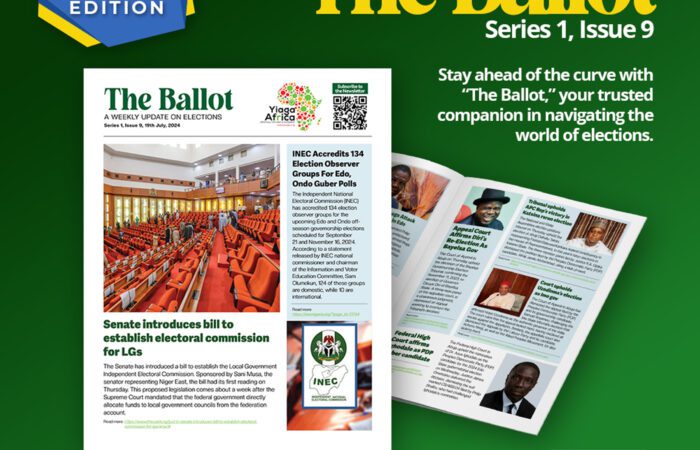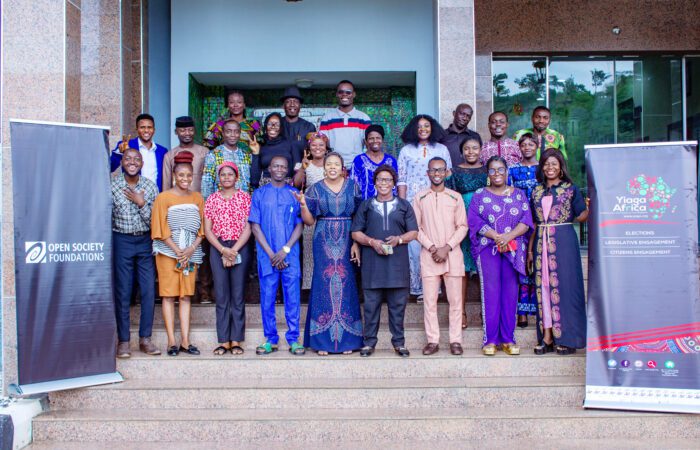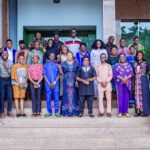Yiaga Africa Watching The Vote Report on Nasarawa Central State Constituency Bye-Election: Nassarawa bye-election underscores the complexity of safeguarding public health and electoral integrity
Introduction
As a precursor to the upcoming 2020 governorship elections in Edo and Ondo states, the Independent National Electoral Commission (INEC) conducted a bye-election on Saturday, August 8, 2020, in the Nasarawa Central State Constituency to fill the vacancy created by the death of Hon. Adamu Suleiman Ibrahim. The bye-election was conducted in 44 polling units across seven wards in Nasarawa local government area (LGA) with a total of 71,919
registered voters. The bye-election was strategically important for three reasons. First, it is the first election to be conducted by INEC amidst the COVID-19 pandemic. It provided a litmus test for INEC’s Policy on Conducting Elections in the Context of the COVID-19 Pandemic and the new Voters Code of Conduct for Elections. Second, the people of Nasarawa Central Constituency voted for a new representative after months without representation in the State House of Assembly. Lastly, INEC introduced INEC Results Viewing (IReV), a new election result viewing portal to provide public access to results from polling units in near real-time. Accordingly, INEC deployed electronic tablets to the polling units to recapture and re-authenticate voter identification information, especially facial identification and the transmission of election results.
Yiaga Africa Watching The Vote (WTV) did not deploy the Parallel Vote Tabulation (PVT) methodology for the bye-election but instead deployed stationary and roving citizen observers to observe the election in 22 out of the 44 polling units where the bye-election held. The citizen observers monitored the voting and counting process, compliance with health safety guidelines, and efficacy of the electronic tablets used for results transmission and voter accreditation.
Despite low voter turnout, technological challenges, and non-compliance with some public health guidelines, the election was peaceful with no incidences of violence. The security agencies maintained professional conduct throughout the election. The voters in Nasarawa LGA deserve commendation for their resilience to participate in the election despite the logistical hiccups that resulted in the late commencement of voting in several polling units and the risks associated with the COVID-19 pandemic. While INEC took some measures to follow COVID-19 health guidelines including providing Personal Protective Equipment (PPE) like face masks, hand gloves, thermometer for temperature checks and hand sanitizers at all observed polling units and sanitizing all voters’ fingers before reading their fingerprints with the Smart Card Reader, INEC experienced challenges maintaining physical distance between voters and ensuring that all voters wore face masks/coverings while at the polls. In addition to massive vote-buying, political parties provided facemasks and handwashing equipment at the polling units to lure voters to cast their votes. It is evident that INEC and other health institutions will need to take measures based on lessons learned from this election to guarantee the enforcement of health safety guidelines during subsequent elections amidst COVID-19, particularly for the upcoming off-cycle governorship elections in Edo and Ondo.
Electoral technology can enhance electoral transparency as observed with the IReV platform; however, it has the potential to undermine the credibility of elections and decrease voter participation if the tools and systems are not tested, verified and deployed in line with Open Election Data principles coupled with adequate public sensitization on their functionality and efficiency. Electoral technology such as the Smart Card Readers and electronic tablets may also disenfranchise voters and trigger violence if they do not function properly or polling officials aren’t adequately trained on how to operate them.







